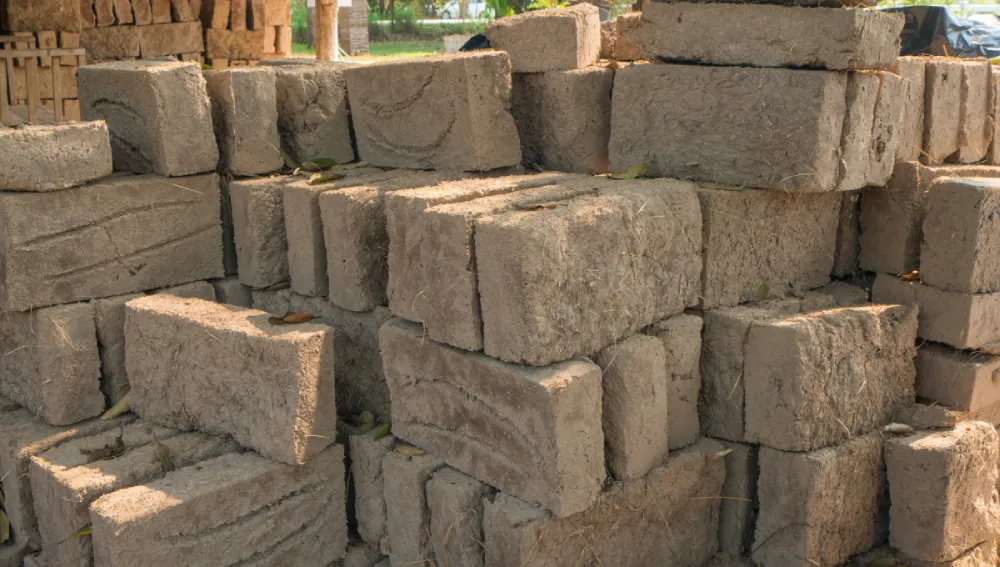Alright, let’s talk about these fire clay bricks, you know, the ones they use for fireplaces and stuff. I ain’t no expert, but I’ve seen enough fires in my day to know a thing or two about what keeps ’em burnin’ safe and sound.
First off, what are these things anyway? Well, they’re special bricks, not like the ones you build your house with. These fire bricks, they’re tough. They’re made from special stuff that can stand up to the heat, keeps the heat where it belongs, helps you save on wood. I heard tell they call that stuff “cordierite” or somethin’ fancy like that. Sounds like a French dessert, if you ask me. All I know is, it can take a whole lotta heat, like, hotter than your oven gets when you’re bakin’ a pie, way hotter. We’re talkin’ thousands of degrees, they say. Hot enough to melt your face off, that’s for sure.


Now, why do you need ’em? Well, if you got a fireplace or a wood stove, you gotta have somethin’ to line it with, right? You can’t just be buildin’ a fire right up against regular bricks, or worse, wood! That’s just askin’ for trouble. These fire clay bricks, they keep the fire from spreadin’ where it shouldn’t, and they keep the heat in where it needs to be. It’s like havin’ a good, strong fence around your garden, keeps the critters out and the veggies safe.
- Keepin’ the heat in: That means less wood you gotta burn, saves you money and trips to the woodpile. That’s always a good thing, ain’t it? Saves your back, too!
- Keepin’ the fire safe: You don’t want no fire sneakin’ out and catchin’ your house on fire, do ya? These bricks make sure that don’t happen. Safety first, I always say.
- Lastin’ a long time: These ain’t no flimsy things. They’re made to last, withstand heat and all sorts of stuff you throw at ‘em. You buy ’em once, and they’ll be with you for years, maybe even longer than you are.
Now, I hear there’s different kinds of these bricks. Some are bigger, some are smaller, some can handle more heat than others. It all depends on what you need ‘em for. If you got a big ol’ fireplace, you’ll need bigger bricks, and maybe ones that can take more heat. If it’s just a little stove, you might get away with smaller ones. Just gotta make sure you get the right ones for the job. Don’t go buyin’ the wrong ones, or you’ll be in a heap of trouble.
And how do they make these things? Well, I ain’t been to the factory, but I reckon they mix up that special stuff, that cordierite, and then they squish it into brick shapes and bake it real good and hot. Like bakin’ a cake, only way hotter and for longer. They gotta get it just right, so it’s strong and can handle the heat. It ain’t somethin’ you can just do in your backyard, that’s for sure.
So, if you’re thinkin’ about buildin’ a fireplace or a wood stove, or if you just need to replace some old bricks, make sure you get yourself some good fire clay bricks. They’re important, they keep you safe, and they’ll last a long time. Don’t go tryin’ to skimp on ’em, you’ll regret it. Spend the money, get the good ones, and you’ll be happy you did. Trust me on this one, I know what I’m talkin’ about. I’ve seen enough fires to know.
And remember, always be careful with fire. It’s a good thing, keeps you warm and cooks your food, but it can be dangerous too. So, be smart, be safe, and use those fire clay bricks like you’re supposed to. That’s all I gotta say about that.
One more thing, if you ain’t sure about what kind of brick you need, ask somebody who knows. Don’t just go guessin’ and end up burnin’ your house down. Go to the store, talk to the fella there, he’ll set you right. Or find yourself a good bricklayer, they know all about this stuff. Pay ‘em a little extra, and they’ll make sure it’s done right. It’s worth it in the long run, trust me. Better safe than sorry, that’s what I always say. And that goes for everything in life, not just fire bricks. You remember that now, ya hear?


Now, I’m done talkin’. Go on and get yourself some good fire clay bricks and stay safe.
Tags: fire clay bricks, fire bricks, fireplace, wood stove, heat resistant, safety, cordierite, building materials


